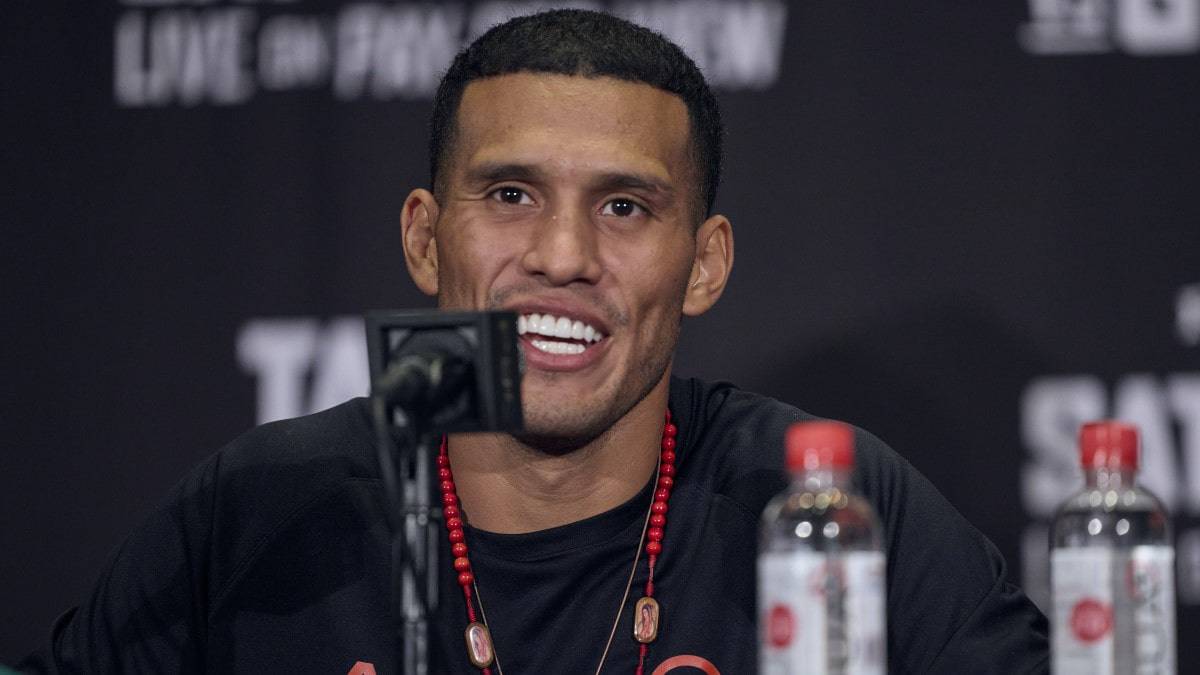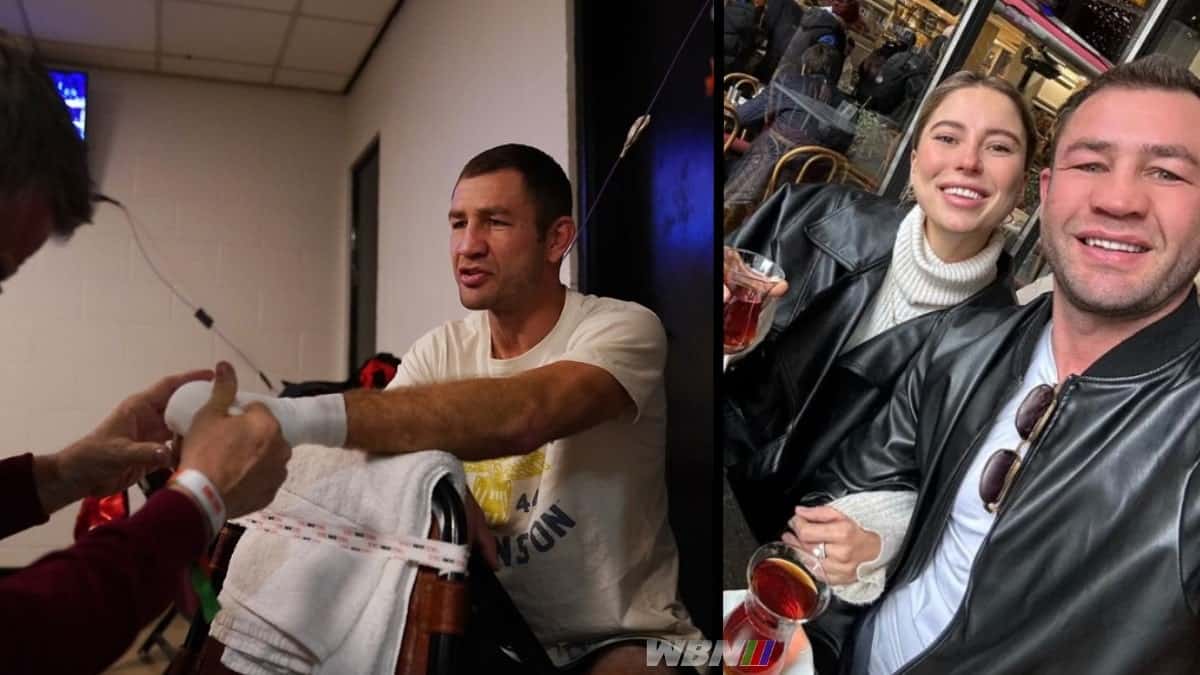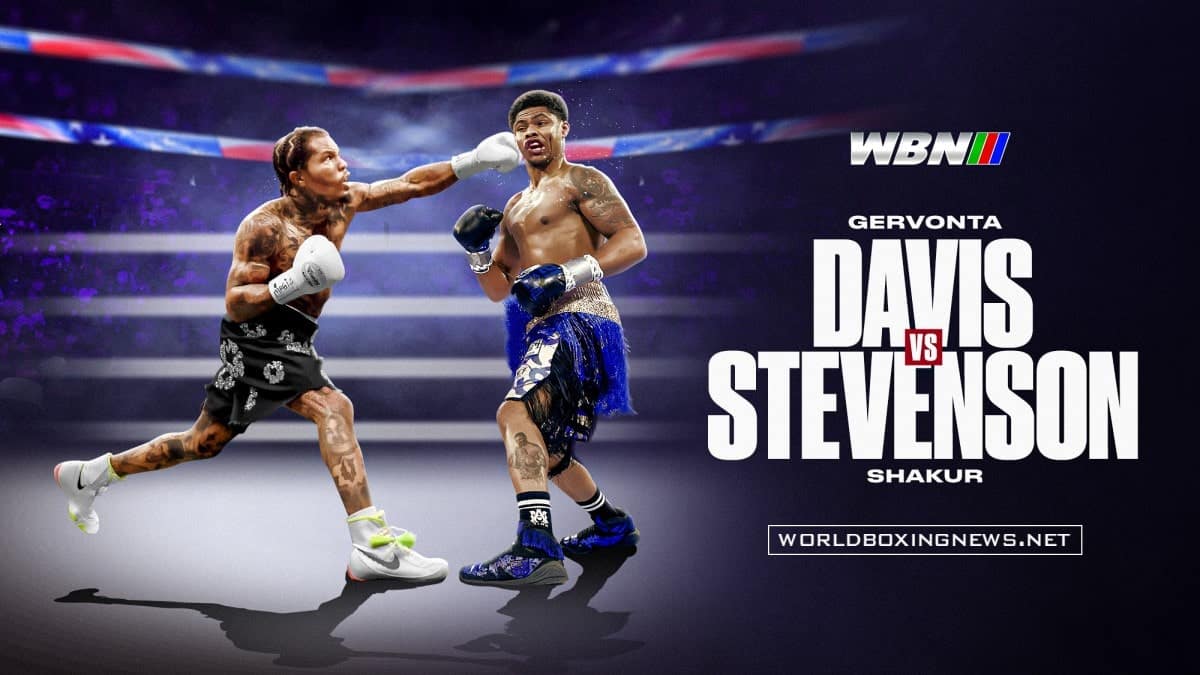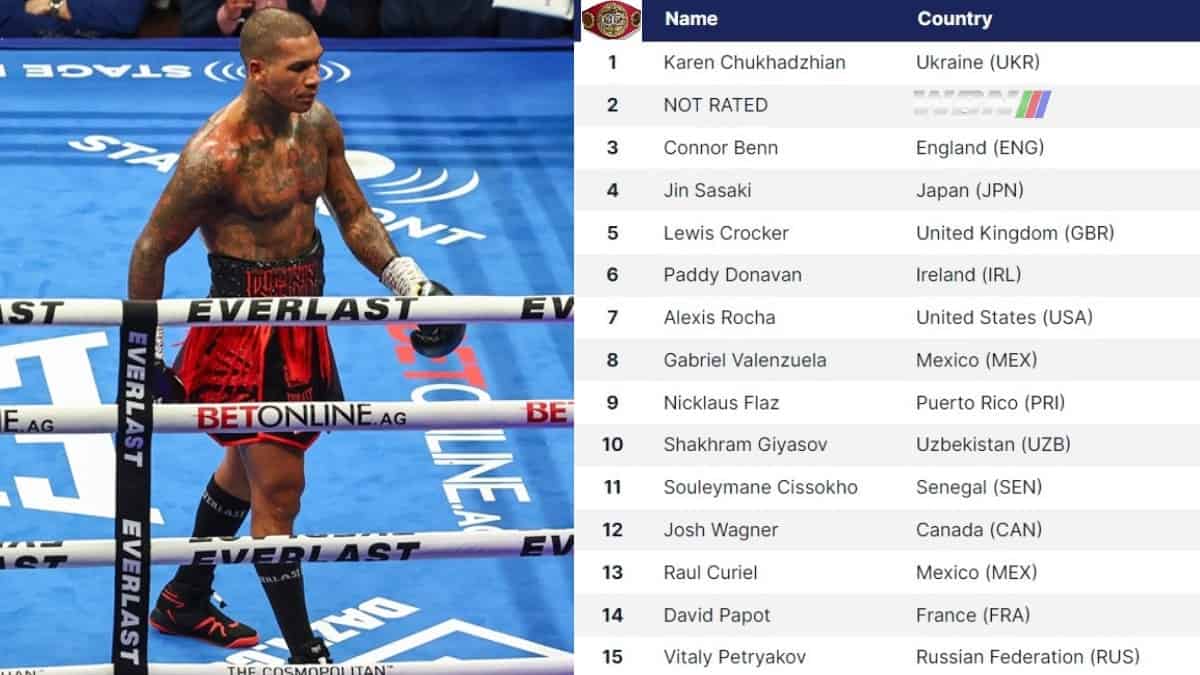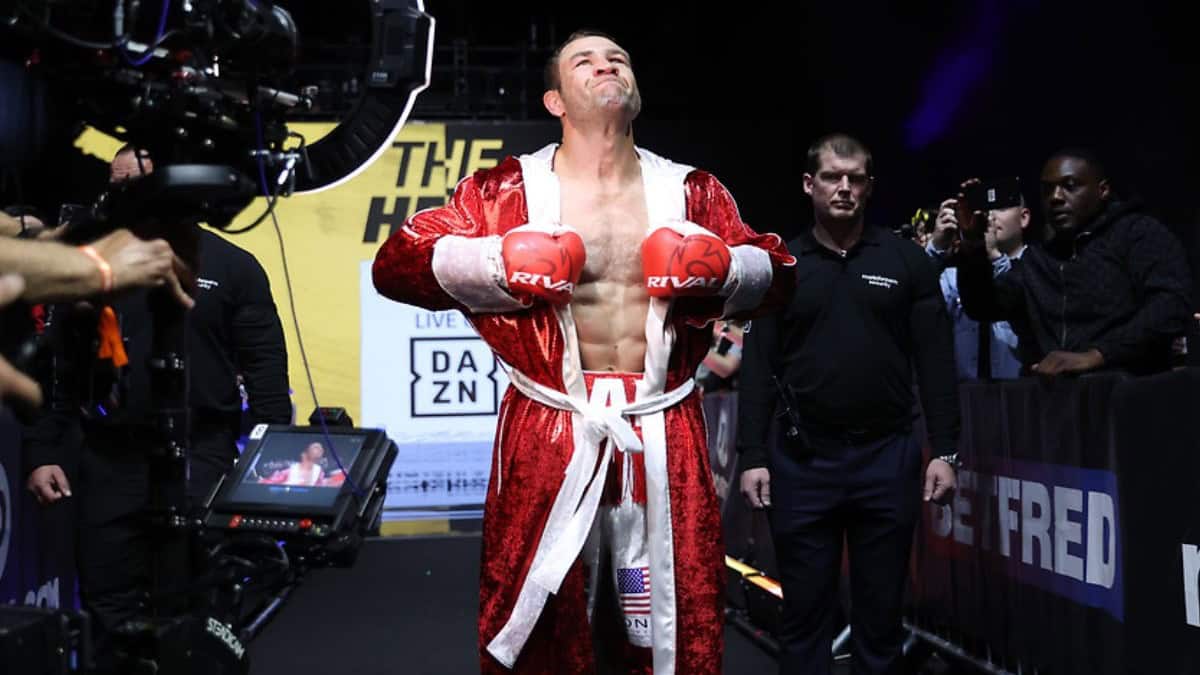David Benavidez is boxing’s equivalent to a BMF, an honorific title that the Ultimate Fighting Championship awards to ‘Bad Mother F——’ in its roster. The more Alan Dawson speaks to Benavidez, though, the more he learns he’s even more than the acronym suggests.
It’s late November at the Michelob Ultra Arena in Las Vegas, and David Benavidez is inflicting a signature pummeling against Demetrius Andrade — one of the trickiest opponents of his career.
Though Andrade started the fight in fine fashion, forcing Benavidez to prove he has punch resistance to compliment his attacking arsenal, ‘The Mexican Monster’ came on strong, like he often does, to bludgeon ‘Boo Boo’ with merciless, unrelenting punches.
The Andrade fight cemented what ardent Benavidez fans, his promoter Sampson Lewkowicz, and those at Premier Boxing Champions have known and recognized for years — that this is one bad mother f—– in the ring — one whom has a difficult fighting style to defend against as he smothers opponents with a volume of shots that only increase, worsen, and hurt more as each contest progresses.
The way he fights appears to be rooted in the ghosts of the Mexican Monster’s past. A victim of childhood bullying, the haunting memory of being called the “fat kid” when he reached 250 pounds as a teenager continues to linger in his mind many years later. Bullies told a middle school David he’d never amount to nothing. That he’d never be s—. The only way he could silence them was by unfurling his fists into their face.
That mindset is something he refuses to bury even though he’s older now. At 27, he channels that adolescent anger whenever he walks to the ring today, regardless of who is in front of him when he gets in the middle, digs his feet into the floor, and pounds his gloves ready to trade. It could be Plant, who he out-pointed in that brutal, bloody, beatdown. Or Andrade whom he overwhelmed and knocked out in a signature pummeling.
Though Benavidez is a monster in the ring, he’s anything but that outside of it.
His public relations representative Emily Pandelakis Girten knows that all too well, and posted on X, the social media site formerly known as Twitter, that Benavidez befriended a cancer-stricken teenage fan called Joshua last summer. The relationship began with a video call.
When that first call connected, Benavidez saw Joshua’s eyes light up on his cell. “He was just telling me he was a huge fan, and I was telling him he was a strong warrior,” Benavidez told World Boxing News.
They met face to face for the first time at that Andrade fight, as Benavidez flew Joshua and his family out to Las Vegas for the event, paid for their hotel rooms, and got them tickets to the show, to see him perform.
Benavidez told us he’ll cherish those moments forever. “Joshua, his brother, sister, and his family — they were all awesome. It was a beautiful thing spending time with them at the Andrade fight.”
It was beautiful, Benavidez said, but also emotional. “I’m not going to lie, we all cried. He cried. I cried. I loved sharing that moment with him and his family, who were all so happy to be there.”
On the eve of his 29th fight, it’s clear that Benavidez has reached rarified status as a people’s champion, attracting fans of all ages for how he fights in the ring, and the man he’s become outside of it.
Yes, he’s boxing’s closest equivalent to the Ultimate Fighting Championship’s belt for Bad Mother F—– athletes in its hulking roster; the BMF belt. Some fighters just have it. That aura that resonates with people so they become a cult hero, of sorts, like Jorge Masvidal, Nate Diaz, and Max Holloway in mixed martial arts. In boxing, that fighter is Benavidez.
But the story with Benavidez and Joshua shows he’s far more than that acronym.
Pandelakis Girten said on X that the experience Benavidez and Joshua shared was “lovely” and they all kept in touch after the fight. Joshua was even student of the month at his school in December.
Ahead of Benavidez’s return to the ring Saturday against Oleksandr Gvozdyk, in the co-main event of a PBC on Prime Video and PPV.com show at the MGM Grand Garden Arena in Las Vegas, the fighter again planned to fly Joshua and his family to southern Nevada, pay for their accommodations, and assign them VIP tickets to the event.
In mid-May, though, Joshua, Pandelakis Girten said, was bedridden, and sadly passed away to cancer.
“I’m heartbroken,” Benavidez told World Boxing News.
“He was such a sweet kid when I met him and I’m glad I had the opportunity to at least bring him to one of my fights, and to see him happy, and grateful, to make his dreams come true.
“Those last moments that I was with him, I was happy to share with him. When he died I was so sad. I was destroyed emotionally. We had talked so much and he was such a good kid.”
His promoter Sampson Lewkowicz knew all about the relationship and heartbreak. “Fighters like Benavidez have a good heart, helping a lot of children. That is the good about boxing,” he told World Boxing News. “Fighters, and champions especially, help others. And it’s so sweet for all these fighters that they do that.”
It reminded Lewkowicz of another of his star performers having promoted 36 world champions through his career.
Sergio ‘Maravilla’ Martinez, a middleweight king with an iconic knockout over Paul Williams, once had a teammate translate a local newspaper to him in 2011, and learned about a child who had been bullied at school. Monique McClain, 13 at the time, was forced to leave her middle school because she was relentlessly tormented by classmates. Martinez invited them to a restaurant with him and his team, paid for their meals, and reserved VIP seats for them for his fight against Sergiy Dzinziruk, which he won by eighth round knockout. He even brought them gifts to show support.
“Maybe it happens also in other sports,” Lewkowicz told us, “but my love is for boxing and it’s in boxing where I see things like this, champions — like Martinez, and like Benavidez — helping children. It’s part of the sacrifice to get up in the morning, run, shed sweat and blood in the gym, just for one night. They deserve all the respect that we can give to these fighters.”
Lewkowicz continued: “Monique is now a grown girl. And I believe they kept in touch for many, many years — even long after Sergio retired.”
Lewkowicz said he doesn’t advise his fighters to forge these relationships. “It comes from Sergio’s heart. It comes from David’s heart.”
Benavidez, World Boxing News understands, will receive $7 million for fighting Gvozdyk. And though he dresses well, in team tracksuits and with jewelry, Lewkowicz said that the fighter knows that Benavidez realizes it’s not all about expensive clothes or chains, but what you can give other people.
“I’m so honored to work with people like David,” he said.
For Benavidez, his experience with Joshua seems bittersweet with the death still so recent and lingering in his mind. It’s made him think about life’s injustices.
“Every time when situations like this happen to kids who are really good children, it just makes you think about life and how it’s unfair,” he said. “Sometimes that’s just the way it goes, man.
“But I know he’s up there, looking down at his family, and protecting them,” Benavidez said.
“He’s an angel in the sky now.”
Alan Dawson is World Boxing News Lead Writer, a 2 x Sports Journalist of the Year finalist, and 5 x BWAA awards winner. Follow Alan @AlanDawsonSport.

